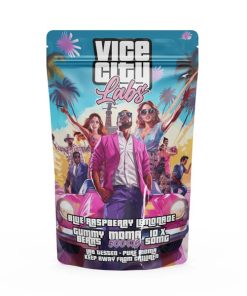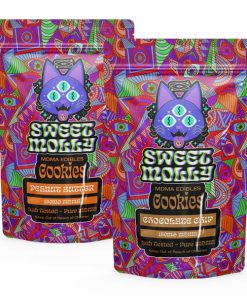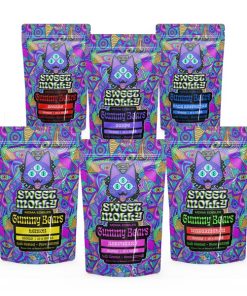MDMA Edibles in Canada
MDMA edibles in Canada have become a topic of growing curiosity, especially as people explore different ways of experiencing psychoactive substances. MDMA, also known as 3,4-methylenedioxymethamphetamine, is widely recognized for its stimulating and empathogenic effects. Traditionally consumed in pill or powder form, it is now also being infused into edible products such as gummies, chocolates, and candies. These edibles offer a different approach to consumption, often providing a slower onset but longer-lasting experience. While MDMA edibles are not legally available in Canada, their discussion is becoming more common as interest in psychedelics and therapeutic substances continues to rise.
What Are MDMA Edibles?
MDMA edibles are food-based products infused with measured amounts of MDMA. Similar to cannabis edibles, they allow users to consume the substance orally without the need for swallowing pills or inhalation. Popular formats include chocolates, gummies, and baked treats. The effects of MDMA edibles are typically delayed compared to direct ingestion, often taking 30 to 60 minutes or more to begin. However, the duration of effects can last longer, making them appealing for individuals who prefer a smoother, extended experience.
Why People Choose Edibles
One of the main reasons people choose edibles is the convenience and taste. Instead of consuming a bitter powder or tablet, edibles provide a discreet and enjoyable method of intake. The slower onset of effects can also feel more natural and less overwhelming compared to faster methods. Additionally, edibles allow for creative dosing options, making it easier for users to choose smaller or more controlled amounts. However, because of the delayed effects, there is also a risk of overconsumption if someone takes more before the first dose has fully taken effect.
MDMA Edibles and Safety
It is important to understand that MDMA edibles, like any other form of MDMA, carry risks. Side effects can include dehydration, elevated heart rate, overheating, and emotional exhaustion. The strength of edibles can also be unpredictable if they are made outside of regulated environments. Since MDMA is illegal in Canada, many edible products on the black market may be mislabeled or mixed with other substances. This lack of regulation creates significant safety concerns. Anyone considering MDMA edibles should be cautious, start with very low amounts, and prioritize safe, trusted environments.
Legal Status in Canada
In Canada, MDMA remains a controlled substance under federal law. This means that the sale, purchase, and possession of MDMA edibles are illegal. Unlike cannabis, which has a regulated market, MDMA has not been legalized for recreational use. However, there is growing interest in its medical potential, especially in research settings where MDMA-assisted therapy is being studied for conditions such as PTSD. As research continues, the future may bring new opportunities for legal and regulated therapeutic applications, but currently, MDMA edibles are not legally accessible in Canada.
Potential Future of MDMA Edibles
With the increasing global conversation around psychedelics and mental health, the future of MDMA edibles in Canada could evolve. If clinical research continues to demonstrate therapeutic benefits, there may eventually be regulated forms of MDMA available for medical use. In such a scenario, edibles could become one of the preferred methods of delivery, especially for patients seeking a gentler and longer-lasting experience. Until then, discussions around MDMA edibles remain speculative, and consumers must recognize the legal and health risks involved.
Conclusion
MDMA edibles in Canada represent a fascinating intersection between recreational curiosity and emerging therapeutic research. While they provide a novel way of consuming MDMA, they also carry significant risks due to lack of regulation and legal restrictions. For now, MDMA edibles remain illegal in Canada, but ongoing studies may eventually pave the way for safe, controlled, and potentially therapeutic use. As with any psychoactive substance, awareness, education, and responsible approaches are essential for anyone considering their place in the future of health and wellness.







